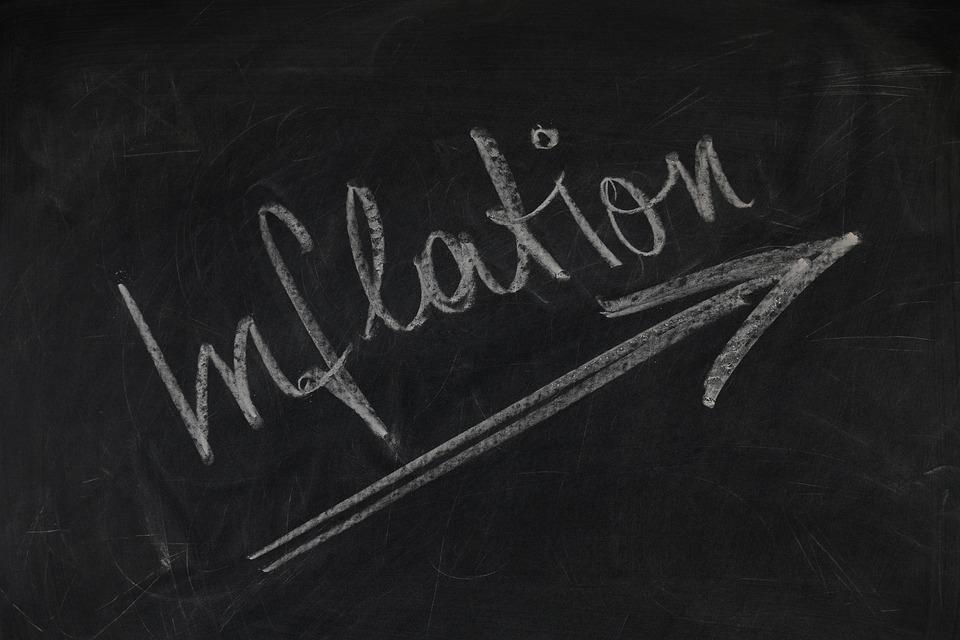All Inflation Is Transitory

The Federal Reserve has recently started to use the word “transitory” when describing inflation pressures in the U.S. economy. What they’re trying to indicate is that we shouldn’t worry, the pressures we are seeing right now will eventually pass. But that’s stupid. All inflation is transitory.
The word “transitory” is meaningless unless you tell me what you’re transiting from, where you’re transiting to, and how long it will take. When I say that the lunar eclipse is transitory, I can define exactly what I mean: the entirety of the disk will be obscured for x amount of time at this particular terrestrial location. But in inflation, saying it is “transitory” is just a weasel word. The inflation of the 1970s was transitory. It was just a long transit.
From what level do you mean it’s transitory? Inflation has been above zero for seventy years, core inflation for another decade longer than that. Maybe that’s transitory, but we just haven’t finished the transit yet. Presumably, the Fed isn’t saying inflation will go back to zero…maybe they mean it will go back to 2% on core? Or perhaps they mean the average of the last few years, well below that? Unclear. So as usual, the Fed is getting the wrong answers because they’re asking the wrong questions.
Maybe what they mean is that “these price changes we are seeing are all the results of supply and demand imbalances in nominal space, so they’ll all reach equilibrium and inflation will go away.” If that’s so, then (a) they’re probably wrong, (b) that’s what inflation looks like anyway; it doesn’t manifest as smooth price changes across all goods at the same time, and (c) you still haven’t told me over what period it will take for this equilibrium to occur. Suppose it takes 5 years, and the average price change over that time is 5%. Does that mean it was transitory? Absolutely. Does that mean we should ignore it in that case? Absolutely not! A 25% change in the price level over five years would mean significant adjustments in product, service, and asset markets; significant volatility in operations of all sorts of businesses that have made long-term bets on inflation (insurance companies with long-tailed lines, e.g.); and significant changes in expectations and consumer behaviors.
If what they mean is “there is no general underlying process of inflation that will push all prices higher in synchronicity, so prices will eventually go back to flip-flopping around with some average tilt higher (say, 2% just to choose a number)” then the hypothesis is theoretical and more importantly unfalsifiable.
If they mean something specific, such as “core inflation will average 3% for two years and then go back to 2%,” then they should say so. But they won’t, and you know why? They haven’t the faintest idea how long it will take, or how high it will get. And they didn’t see it coming in the first place, after all. And anyway, now that they are using “average inflation targeting” (with no stated target, at no stated distance) they don’t really care. What they do care about is that we all believe that these price changes are “transitory,” because then we won’t panic or slip the anchor of our inflation expectations.
Of course, inflation will come back down again. In my view, it will come down in 2022, but from a significantly higher level than we are at; the subsequent low will probably not be below the Fed’s target, and the next high will be alarming to them. Because I think they can stomach almost any level of inflation as long as they believe it’s a semi-permanent high. If it’s just a local maximum, that will concern them. But notice, we’re talking about half a decade from now. Or, maybe it’s sooner. Heck, I don’t have to have the time frame nailed down – I’m not the one claiming it’s “transitory.”
So, lumber futures are falling now, after spiking higher. Resin prices have come down after spiking higher. Does that mean these were ‘transitory’ effects? If we were at the beach, we would describe each wave as transitory. But we would also want to know if the tide was coming in, or going out, when we set up our beach chairs. If it’s me? Right now I am setting my chairs a good distance away from the water.



